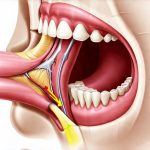Emotional overstimulation is an increasingly common experience in our modern world, characterized by a relentless influx of sensory information and demands on our attention. This constant bombardment can overwhelm our nervous system’s capacity to process stimuli effectively, leading to a cascade of physiological and psychological responses. While often discussed in terms of anxiety or burnout, the profound impact of emotional overstimulation extends deeply into our physical well-being, specifically affecting fundamental bodily functions like appetite regulation and gastrointestinal health. Many individuals experiencing this phenomenon report significant reductions in their desire to eat, coupled with uncomfortable sensations of stomach clenching – symptoms that can quickly escalate into chronic issues if left unaddressed.
The connection between emotional state and digestive function is far from new; the gut-brain axis has long been recognized as a powerful bidirectional communication system. However, the sheer intensity and pervasiveness of modern overstimulation exacerbate this relationship, creating a feedback loop where heightened emotional arousal inhibits normal appetite signaling and triggers physical tension in the gastrointestinal tract. This isn’t simply ‘stress eating’ in reverse; it’s a more complex physiological response wherein the nervous system prioritizes survival mechanisms – such as shutting down non-essential functions like digestion – over the demands of nourishment. Understanding this interplay is crucial for developing effective strategies to mitigate these uncomfortable and potentially debilitating symptoms, moving beyond simple dietary fixes towards holistic approaches that address the root cause: emotional overload.
The Neurophysiological Mechanisms at Play
Emotional overstimulation fundamentally alters brain activity, shifting resources away from higher-order cognitive functions like rational thought and appetite regulation toward more primal survival responses. When faced with perceived threats – even if those threats are simply overwhelming schedules or constant notifications – the amygdala, the brain’s emotional center, triggers a cascade of neurochemical events. This includes the release of cortisol, often dubbed the “stress hormone,” and adrenaline, preparing the body for ‘fight or flight.’ – Cortisol, while essential in acute situations, chronically elevated levels suppress appetite by interfering with ghrelin (the hunger hormone) production and decreasing sensitivity to leptin (the satiety hormone). – Simultaneously, adrenaline diverts blood flow away from digestive organs towards muscles and vital organs, effectively slowing down the entire digestive process.
This physiological shift explains why many individuals under chronic emotional stress experience a loss of appetite or find themselves unable to enjoy food even when hungry. The stomach, deprived of adequate blood flow and inhibited by cortisol, struggles to produce digestive enzymes efficiently, leading to feelings of fullness or nausea even with minimal intake. Furthermore, the constant activation of the sympathetic nervous system – responsible for the ‘fight or flight’ response – inhibits peristalsis, the wave-like muscle contractions that move food through the digestive tract. This can result in bloating, constipation, and the uncomfortable sensation of stomach clenching that many associate with emotional distress. The body essentially prioritizes energy conservation and protection over digestion, creating a vicious cycle where diminished appetite further weakens the system, making it even more vulnerable to stress.
It’s important to note that this isn’t always a conscious process. Individuals may not even realize they are experiencing intense emotional overload until physical symptoms like appetite loss or stomach clenching emerge, highlighting the subtle but powerful influence of emotional state on bodily functions. The brain often operates below the level of conscious awareness, making it difficult to identify and address these underlying issues without mindful self-assessment and proactive coping strategies. Understanding how stress eating impacts your overall health is vital for managing symptoms.
Impact on Appetite Regulation & Gut Health
The disruption of appetite regulation due to emotional overstimulation isn’t merely a temporary inconvenience; it can have long-term consequences for both physical and mental health. Chronic suppression of appetite leads to nutritional deficiencies, weakening the immune system and reducing energy levels. This creates a negative feedback loop where diminished vitality further exacerbates feelings of stress and anxiety, intensifying emotional overload. – The gut microbiome, heavily influenced by dietary intake, is also significantly impacted. A reduced and less varied diet starves beneficial gut bacteria, allowing harmful bacteria to proliferate.
This imbalance – known as dysbiosis – compromises the integrity of the gut lining, increasing intestinal permeability (often referred to as ‘leaky gut’). – Leaky gut allows undigested food particles and toxins to enter the bloodstream, triggering inflammation throughout the body and potentially contributing to autoimmune disorders. The gut microbiome plays a crucial role in mood regulation through the production of neurotransmitters like serotonin; dysbiosis can therefore contribute to increased anxiety and depression. The consequences extend beyond immediate physical discomfort. Persistent stomach clenching isn’t just unpleasant; it indicates significant muscular tension within the digestive system, potentially leading to functional gastrointestinal disorders such as irritable bowel syndrome (IBS). These conditions can further complicate appetite regulation and exacerbate emotional distress, creating a complex interplay between mind and body. Fermented dairy products can help improve gut health and resilience.
Identifying Emotional Overstimulation Triggers
The first step in addressing the impact of emotional overstimulation on appetite loss and stomach clenching is identifying the specific triggers that contribute to overload. This requires honest self-reflection and mindful observation of one’s environment and daily routines. – Common triggers include: excessive social media use, constant news consumption, demanding work schedules, relationship conflicts, financial worries, and exposure to loud or chaotic environments. Keeping a journal can be an incredibly effective tool for tracking emotional states and identifying patterns. Note down when you experience appetite loss or stomach clenching, along with the circumstances surrounding those events.
Consider these questions: What were you doing immediately before experiencing symptoms? Who were you interacting with? What thoughts or worries were running through your mind? – Another helpful exercise is to assess your exposure to sensory stimuli throughout the day. Are you constantly bombarded with notifications, emails, and phone calls? Do you work in a noisy or visually cluttered environment? Identifying these sources of overstimulation allows for targeted interventions aimed at reducing environmental stressors. It’s also crucial to recognize internal triggers – negative self-talk, perfectionistic tendencies, and unrealistic expectations can all contribute to emotional overload. The impact of artificial flavors on the gut microbiome should also be considered.
Strategies for Reducing Emotional Load
Once you’ve identified your personal triggers, the next step is implementing strategies to reduce your overall emotional load. This isn’t about eliminating stress entirely; it’s about managing it effectively and building resilience. – Mindfulness practices: Regular meditation, deep breathing exercises, and yoga can help calm the nervous system and increase awareness of emotional states. Even a few minutes of daily mindfulness can make a significant difference. – Boundary setting: Learn to say “no” to commitments that overwhelm you and prioritize activities that nourish your well-being. This includes establishing clear boundaries with work, family, and social obligations.
- Digital detox: Limit screen time, especially before bed, and create designated periods for disconnecting from technology. Consider turning off notifications or using apps designed to block distracting websites. – Prioritizing self-care: Engage in activities that bring you joy and relaxation, such as spending time in nature, reading a book, listening to music, or pursuing a creative hobby. Remember that self-care isn’t selfish; it’s essential for maintaining both physical and mental health. The impact of cooking frequency on gut health can be improved with these practices.
Rebuilding the Gut-Brain Connection
Addressing appetite loss and stomach clenching requires more than just reducing emotional overload; it also involves actively rebuilding the gut-brain connection. This means nourishing your gut microbiome and supporting healthy digestive function. – Dietary modifications: Focus on consuming whole, unprocessed foods rich in fiber, prebiotics (found in foods like garlic, onions, and bananas), and probiotics (found in fermented foods like yogurt, kefir, and sauerkraut). Avoid processed foods, sugary drinks, and excessive caffeine or alcohol, as these can disrupt gut health.
- Mindful eating: Practice mindful eating by slowing down your meals, savoring each bite, and paying attention to your body’s hunger and fullness cues. Avoid eating while distracted or stressed. – Stress management techniques: Incorporate stress management techniques into your daily routine, such as exercise, yoga, meditation, or spending time in nature. Regular physical activity releases endorphins, which have mood-boosting effects and can help reduce cortisol levels. Ultimately, restoring a healthy gut-brain connection requires a holistic approach that addresses both the emotional and physiological components of this complex interplay. It’s about cultivating self-awareness, prioritizing well-being, and fostering a compassionate relationship with your body and mind. Late-night eating habits should also be carefully considered. Furthermore, exploring the impact of additives and preservatives is crucial for long term gut health.


















